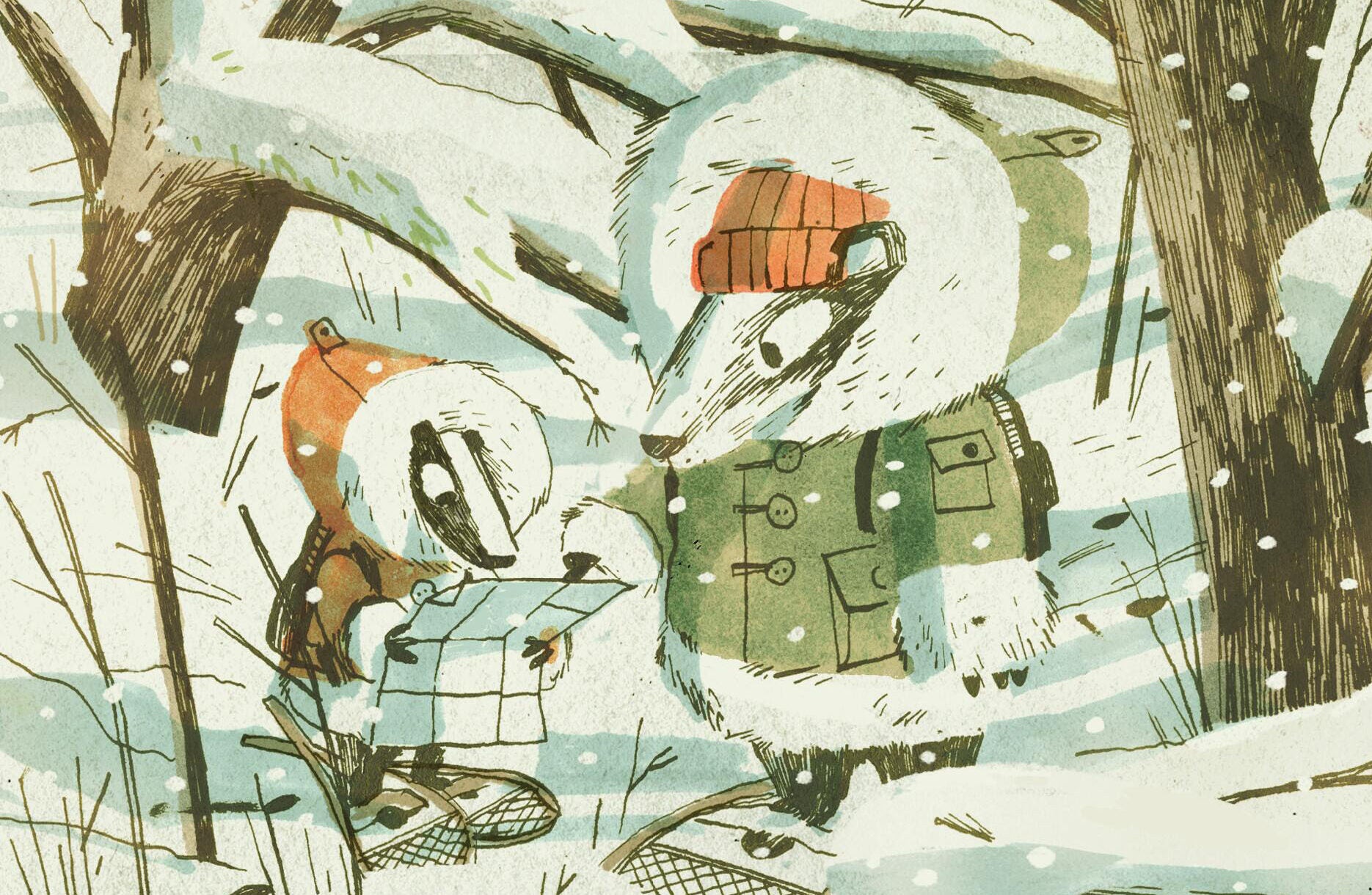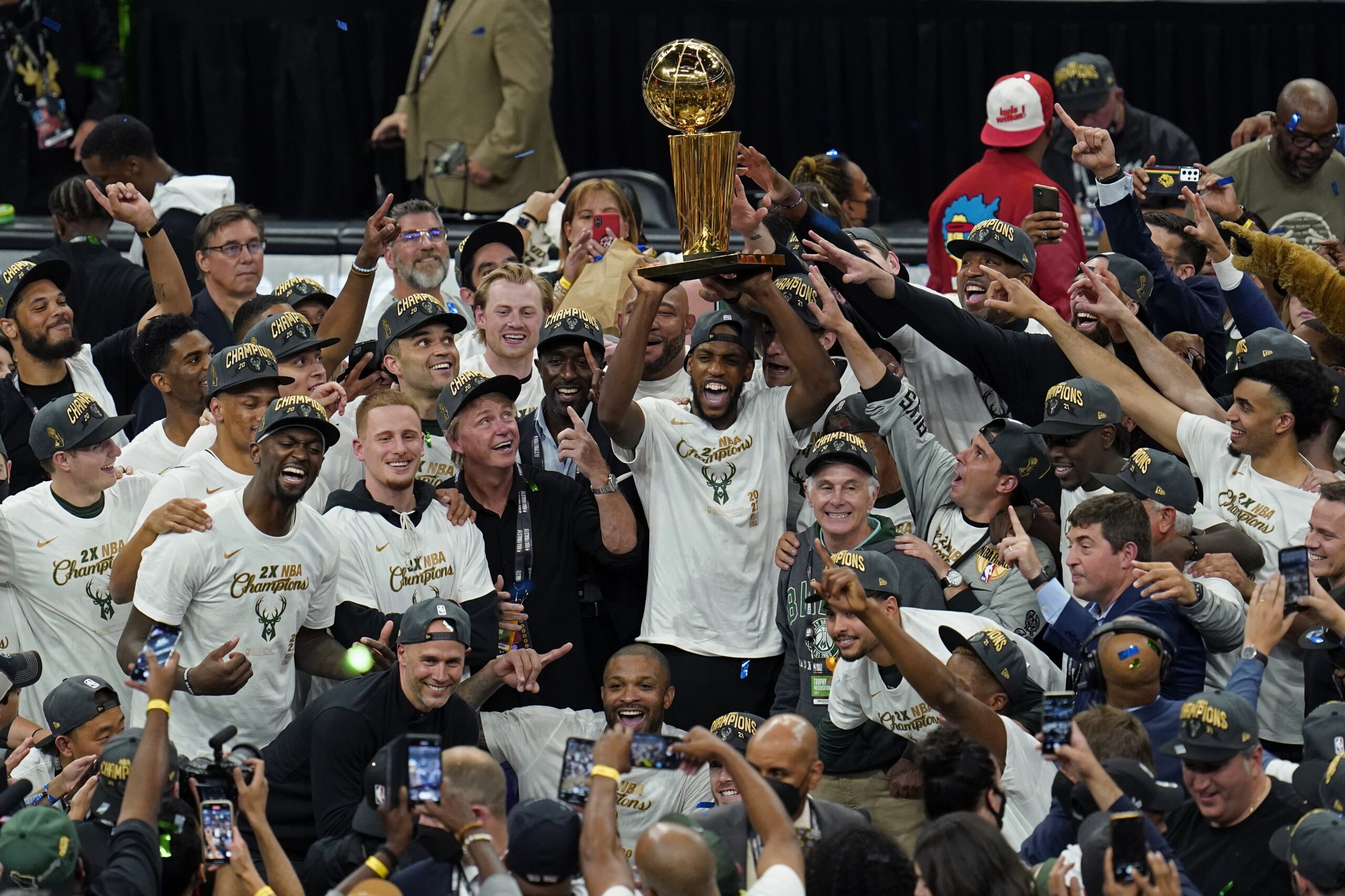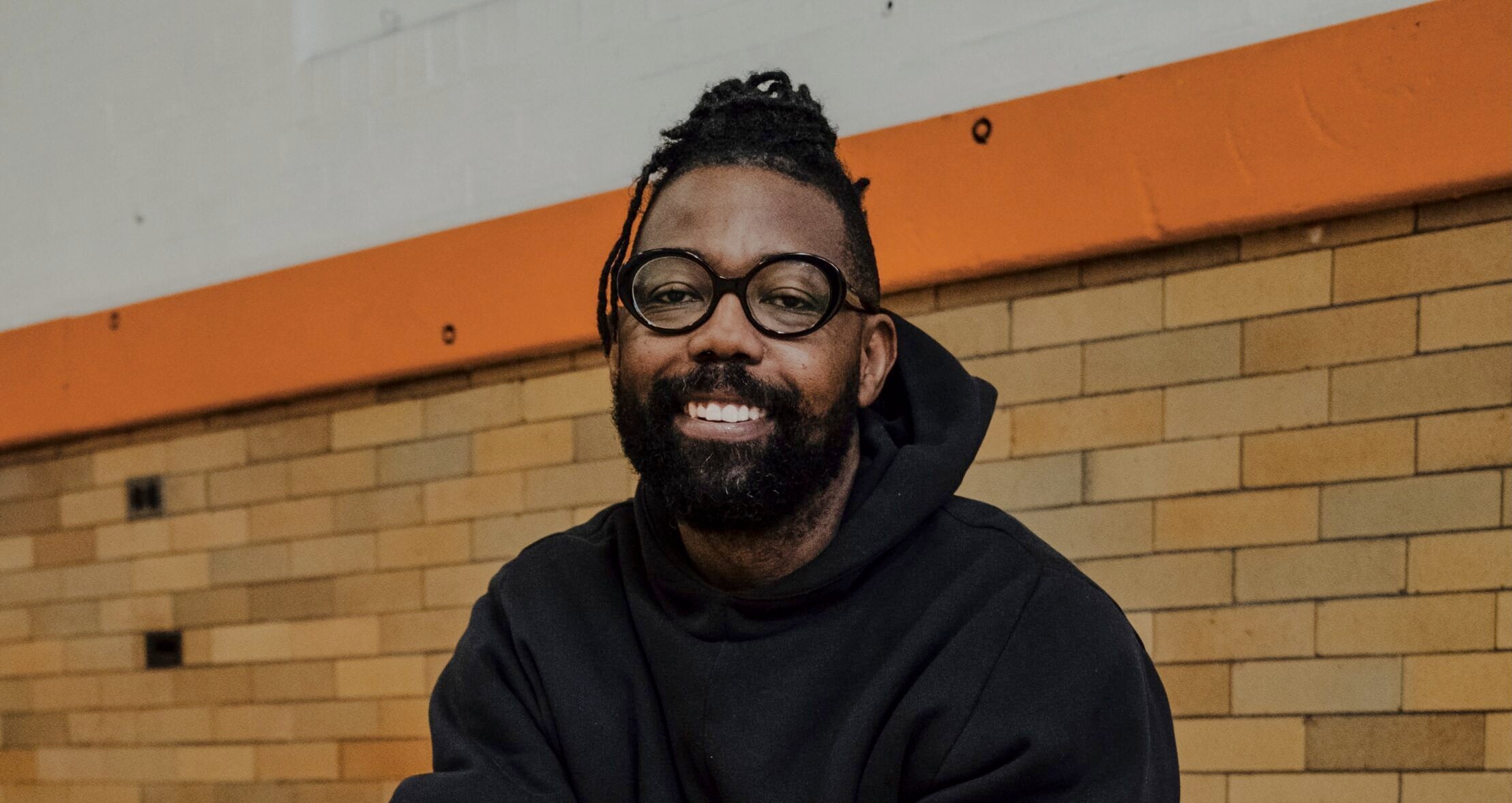Mateo Askaripour on his debut novel, “Black Buck,” about a Black salesman on a mission. Also, the surreal comedy troupe The Firesign Theatre talk about their first record in 35 years. And acclaimed British novelist Martin Amis on his autobiographical novel, “Inside Story.”
Featured in this Show
-
'Black Buck' Follows The Lone Black Person At A Successful Startup
Mateo Askaripour’s debut novel “Black Buck” focuses on a young Black man named Darren Vender. He quits his Starbucks job to join New York City’s hottest tech startup, Sumwun. Darren is the only Black person at the company and after a grueling first week of training, he reinvents himself as “Buck,” a tough-as-nails salesman. The book has been described as “The Wolf Of Wall Street” meets “Sorry to Bother You” meets “Fight Club.”
Askaripour told WPR’s “BETA” that he considers Martin Scorsese’s “The Wolf Of Wall Street” to be one of the classic sales movies, along with “Wall Street,” “Glengarry Glen Ross” and “Boiler Room.”
“Even though what ‘Black Buck’ is doing is in some ways redefining them or even tearing down what they symbolize, I liked those movies,” Askaripour said.
He wanted to transfer the same kind of energy that’s in “The Wolf Of Wall Street” into “Black Buck”, “so that people who are familiar with those classic sales movies, plays and books would be able to look at ‘Black Buck’ and say, this deserves that space alongside these other movies.”
But at the same time, “Black Buck” is “also completely different, not just because he’s a Black man, but also because it takes place in the world of tech startups in this 21st century model of sales, which is so different compared to those other types,” he said.
Just a few years ago, Askaripour hit creative rock bottom. It was Stephen King’s book, “On Writing: A Memoir of the Craft,” that helped him turn things around.
“When I read ‘On Writing,’ a few things stood out to me. One was that he said, ‘Hey, I just write all of these books by getting my characters into scenarios and then figuring out how to get them out of it through hundreds of pages or maybe not even getting them out of it.’ I said, “Oh, that’s simple. Maybe I’m overcomplicating this.’”
“Secondly, he said, ‘The best way to become a better writer is to write more and read more.’ I said, ‘You know what? That’s also simple enough.’ So I took those two pieces of advice while also understanding, for him as a person, that writing was just such a core tenet of his identity in the same way that I’m talking about ‘Wolf,’ ‘Wall Street’ and all those salespeople.”
Askaripour said that he wasn’t really trying to tackle the world of sales with “Black Buck.”
“It was moreso to comment on various manifestations of white supremacy and systemic racism. And for me, sales was just the tool that was most readily available to me due to my experience,” he said. “If this were high school, I would have written about soccer. Because I was the soccer player and I had experienced racist things while playing soccer and where I was the only Black kid on this team.”
It’s no surprise that Askaripour’s depiction of the startup where Darren works has a high level of realism. For a while, Askaripour was very immersed at a startup where he worked as a sales leader.
“It was my life. I was inseparable from the startup I was working at and it felt like it was inseparable from me,” he said.
“I didn’t have people on the daily subjecting me to things that Darren was subjected to. But I have experienced the things Darren has experienced regarding race, regarding discrimination outside of the workplace in very extreme ways when I was younger. So I translate a lot of that into the workplace because I know how it feels to be the only one. And I know that other people who are of a minority background — whether it’s regarding race, gender expression, sexual orientation, religion in the workplace — can feel that these almost innocuous slights that are rooted in racism and discrimination are actually the size of the Grand Canyon.”
Askaripour says “Black Buck” is a cautionary tale about “what happens sometimes when you just follow white men into the breach, and just like, ‘Yo, if you don’t know what you’re doing, you could get got,’ as we’d say.’”
“Giving your whole self to something so quickly is a recipe for disaster sometimes. Not respecting the opinions of people who love you unconditionally — red flag. When you start to do that like with your parents, your closest friends — red flag. And bad things will happen,” he said. “I mean, it happened to me in a certain way. It’s not even so much as a happening, but it’s like I became someone who I wasn’t proud of and I had to work through that and work beyond it. And it’s something that I’m still doing now every day.”
-
How The Firesign Theatre Predicted The Future
In the mid-1960s, the Beatles released a revolutionary album called “Sgt. Pepper’s Lonely Hearts Club Band.” Half a world away, four young men dropped the needle on a vinyl copy of the record and a new concept in comedy was born.
The Firesign Theatre first appeared in late 1966 on KPFK in Los Angeles on a radio show called “Radio Free Oz.” But when Philip Proctor and David Ossman, along with Peter Bergman and Philip Austin, first heard “Sgt. Pepper,” they knew they were on the right track with their comedy.
Ossman and Proctor, the two surviving members of the quartet, spoke with WPR’s “BETA” about the group’s genesis and the Beatles’ impact.
“They were a great inspiration, there’s no doubt about it, and we even incorporated some material from the Beatles into our records as an homage,” Proctor said. “We had in common a love of old-time radio, and we created the long-form comedy record. The Beatles simultaneously released this incredible long-form musical album. So it was a bit of synchronicity, and a validation, if you will, of what it was we wanted to do with our comedy chops.”
The Firesign Theatre’s humor is best described as surreal, futuristic science fiction fantasy with a heavy dose of absurdist social commentary. Their body of work, including 15 record albums, deal with such contemporary concepts as channel surfing, cars with climate control and television screens, and even foreshadowed GPS.
And the Firesigns did not shy away from social commentary. Their work predicted the downfall of the Soviet Union, the undoing of a president, the computer revolution, and a modern-day plague.
Ossman puts it this way: “I think at heart, although we loved mystery, we were really science fiction writers in that big genre, it holds everybody from futurists to fantasists to surrealists. Over the course of our entire career, we developed all kinds of worlds and characters and universes. I mean, it was fantasy combined with science fiction, combined with comments about what was going on at that moment.“
The Firesign Theatre has just released their first new record in 35 years — “Dope Humor of the Seventies.” It’s a two-disc set that includes 83 minutes of freeform radio mayhem, and madness from 1970 to 1972.
One of the sketches featured on the new record also appears on the troupe’s 1972 album, “Dear Friends.” It’s called “The Chinchilla Show.” Proctor wrote it and recalls that he might have come up with the idea from a comic book advertisement for how you could raise chinchillas for fun and profit or the idea might have come from a TV commercial. Either way, he wrote it up and the late Austin performed it with him. Austin improvised on the script which is the way that the Firesigns always worked.
“We would have a script,” Proctor said. “And then we could play with it and make it live and change it as the characters informed us as to what was happening.”
“Our records were listener-supported records because they were to be listened to in the privacy of your own mind,” Proctor said. “And of course, we call them movies for the mind, too. And then if you liked it, you could tell your friends. And then if they liked that, they’d buy another of our records.”
So what is the Firesign Theatre’s legacy?
“The legacy is that we influenced, one can even say infected, many minds,” Proctor said. “I called it a bad head cult. And there are people out there who carry on the legacy of the Firesign Theater in their language and during their daily lives, because they like to gravitate to comedy rather than seriousness in order to kind of counteract the dark that’s happening.”
-
Literary Icon Martin Amis Reflects On Life And Legacy With 'Inside Story'
Editor’s note: Martin Amis died at his home on Friday May 19. The following is from a conversation with Wisconsin Public Radio’s “BETA” about his book, “Inside Story.”
In the prelude to his new autobiographical novel, “Inside Story,” acclaimed writer Martin Amis shares an anecdote about speaking at an assembly at his daughter’s school. When he asked the adolescent audience how many of them wanted to become writers, he said nearly two thirds of the room raised their hands.
Amis wasn’t surprised at all by this. He tells WPR’s “BETA” he believes a desire to write is innate in almost all of us, especially at that young age.
“I think that the urge to write is almost universal,” he said. “I think it is something that naturally coincides with adolescence. This desire you have to commune with yourself, and to take notes, and to write poems, that comes upon us when we become articulate in this new sense when we’re adolescent.”
The subtitle of Amis’ book is “How To Write” and he’s turned the structure of “Inside Story” into something akin to a literary mixtape. Amis sprinkles in writing advice or “guidelines” and memoir-ish essays throughout the novel.
When asked why he decided to go about putting the book together this way, Amis offers another lesson by gently admonishing that “why” is the wrong question to ask a writer.
“‘Why?’ did you decide is usually the wrong verb, because in writing you make dozens of little decisions every page, but the big decisions are subconscious. They emerge with the force of instinct and not from the front of the brain, but from the back,” Amis said. “(The structure) just emerged. I wanted it to be digressive and even pedagogic.”
Amis is addressing young readers and aspiring writers with these guidelines. He argues the simple, but crucial point that the writer/reader relationship is foundational to literature. Amis puts a new perspective on this dynamic, though saying that the reader is just as much of an artist as the writer.
“You’re completely dependent on the reader,” he said. “A tale is nothing without a listener. It doesn’t exist. So you have this relationship with the reader, and the reader is something of a writer or an artist in which no two readers have the same image of Madame Bovary. They paint the characters with their imaginations.”
“Inside Story” is populated with most of the influential writers from Amis’ life including Saul Bellow, Philip Larkin, Salman Rushdie and his father, Kingsley Amis. Amis is astutely aware of being surrounded by great writers and being raised by one of England’s finest novelists.
Amis said it’s rare for there to be two generations of literary writers in one family. He reasons it might be that having a famous writer for a father seemed to “de-glamorize” the admittedly attractive lifestyle of being a writer to him.
“If you want a father who’s going to push you towards writing, then better to have a coal miner than a novelist,” Amis said. “Nothing is more banal than what your father does for a living.”
Even still, Amis would go on to literary fame just like his father. Added to that, Kingsley Amis married fellow novelist Elizabeth Jane Howard, who helped encourage her stepson as well.
“I also had a stepmother for 18 years who was a very distinguished and brilliant novelist, Elizabeth Jane Howard,” Amis said. “With three novelists in the house for many years, and that is bound to have peculiar results.”
But the most poignant passages of the novel feature Amis’ lifelong friend, Christopher Hitchens. Hitchens is perhaps best known to the world — as Amis describes him in the book — as the “much-loved essayist, memoirist, and blaspheming polemicist.”
The two met in their 20s as fellow journalists at the New Statesmen when Hitchens was a proud Trotskyist and seemed to be mutually impressed with the other.
“It was just one of those meetings of mind,” Amis said. “He was very charming and winsome. I gave him some release from Trotskyism. My triviality was a kind of vacation for him.”
Amis recalls one of his favorite memories of Hitchens was when the two were in a small restaurant enjoying their favorite pastime of discourse when they were interrupted by a group of “upper crust” party planners rearranging the tables in the dining room. When the inevitable, sheepish request from one of the men began with the phrase, “You’re going to hate me for this” Hitchens interrupted him and declared, “We hate you already.”
The affection Amis affords his friendship with Hitchens in “Inside Story” serves as a spiritual sequel to Hitchens’ own warm reflections on their friendship in his ‘Martin’ chapter of his 2011 memoir, “Hitch 22.”
Hitchens was diagnosed with Esophageal cancer and died in the winter of 2011. Amis famously delivered a touching eulogy to him. It’s evident that as Amis grapples with mortality at age 71 – referring to it as the unwanted song you can’t get out of your head – that he holds Hitchens’ approach to death as a lasting lesson from their friendship.
“I respect death. I’m glad it happens. I think it should happen. I think immortality is a repulsive idea,” Amis said. “Christopher was a great example to me because I thought he met it as stoically and without any diminution of his own personality.”
Amis was ambiguous about whether this would be his ultimate novel. He intends to continue writing and says that for the “time being” it’ll likely be more short stories.
“Inside Story” is available from Knopf.
Episode Credits
- Doug Gordon Host
- Steve Gotcher Host
- Adam Friedrich Producer
- Steve Gotcher Producer
- Steve Gotcher Technical Director
- Mateo Askaripour Guest
- David Ossman Guest
- Philip Proctor Guest
- Martin Amis Guest
- Steve Gotcher Interviewer
Wisconsin Public Radio, © Copyright 2026, Board of Regents of the University of Wisconsin System and Wisconsin Educational Communications Board.




